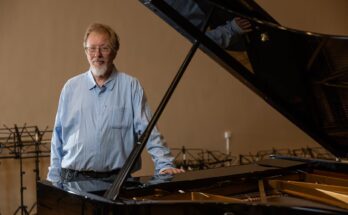On November 13, 2015, Michel Caboshe and a dozen police officers from BAC 75N, the Paris night crime brigade, were doing some sport before starting their shift. “We usually do this before starting. We received a call. We were requested in the Bataclan area. We were not yet on duty, but we got ready, put on our uniforms and left. Even though we were not officially on duty yet,” he points out.
Caboshe and his unit’s companions were the first to enter the Bataclan room on the night of the terrorist attacks of November 13, even before the BRI, the police Rapid Intervention Brigade, more specialized in hostage-taking, did so. In reality the BAC acts for the most common crimes, it is not an elite unit, so it has not yet had permission from the prefecture to intervene.
However, the police entered. Since they didn’t know exactly what they would find, Caboshe sent a farewell message to his family “just in case.” “We went to the Bataclan without thinking, the terrorists were still inside. We didn’t know where they were or how many there were and we quickly formed the unit into groups. I was in second position, the light from the stage projector made it difficult for me to see. I immediately noticed the smell of gunpowder, the magazines that were on the ground. There was a sea of blood.”
This agent remembers that night in front of a group of journalists at the entrance to the Bataclan concert hall, ten years later, shortly before the start of the official ceremony in honor of the 90 people who lost their lives in the establishment. When they arrived, one of the BAC commissioners, Guillaume Cardy, was already inside. He was the agent who killed one of the three terrorists who attacked the venue starting at 9.40pm, shooting concertgoers.
“Part of the unit was lined up in front of the stage. Each group took its position. I was on the right side of the runway. The others were on the left side and some in front of the runway. Our intervention took place from ten in the evening until the complete release of the runway, hours later,” explains this officer, together with two other colleagues who participated in the bombing.
They took people out as best they could and it is at that point that, 10 years later, their intervention is still being debated, whether they “could have done more”. “We had to make decisions that marked us forever. We had to sift through, distinguish between the wounded and the dead, evacuate them and provide first aid on the spot. It’s like war medicine. Who is above human life? Nobody. For this I blame myself for having had to choose between life and death, between the seriously wounded and the urgent ones, but decisions had to be made. I still ask myself: were the ones I made the right ones?”
The operation in the Bataclan hall took place in several stages: the BAC police entered the court and tried to remove people after killing one of the jihadists, and the agents of the BIS and the RAID, another elite unit, entered the upper floors, where the other two terrorists were located with 11 hostages. At around 10.20pm, more than 70 officers from the elite police units (BRI and RAID) were present in the room. The hostages were eventually evacuated and the two terrorists were killed when their explosive belts were activated.
Guillaume Cardy, the BAC commissioner who arrived first and destroyed one of the terrorists, has been promoted and now heads the RAID, the most prestigious elite unit of the national police. Caboushe left the police force and now runs a security company. They were offered psychological support, which they refused. Time “served to heal the wounds”.
During the ceremony in honor of the victims of the Bataclan, the names of the 90 people who died were read in the room. The reading lasted about ten minutes. There were more than 1,000 attendees, including many survivors and family members, who these officers were able to speak to and who reminded them that yes, they had made the right decisions. “Some have recognized this, over time I realize that I may have had doubts from an operational point of view, but that we did the best we could,” adds Caboushe.



